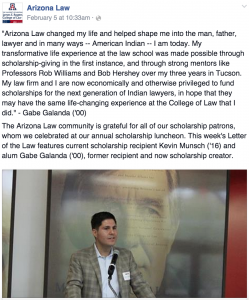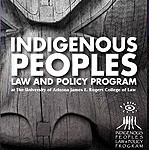By Anthony Broadman

The tribal tobacco industry has long represented a significant segment of many tribes’ economic development efforts. In the tribal tobacco hotbed of New York State, for instance, tribes sold 10 million cartons in the first half of 2011.
The numbers are difficult to nail down exactly, but we can presume safely that, even if tobacco doesn’t rival the $30 billion Indian gaming industry, it is economically significant for many of those tribes and member businesses involved in selling cigarettes. But this behemoth was born out of struggle—struggle so contentious that state-tribal cigarette tax disputes are often characterized as “war,” and marked with actual physical conflict, complete with burning tires and injured cops.
These struggles are creatures of federal court decisions that attempt to fit the square peg of Indian commerce into the round holes of state tax interests. Very roughly, most sales of major brand cigarettes by tribes to non-Indians are subject to state taxes. One exception to this rule (and the relevant one for tribes who hope to sell pot) is that when a tribe generates otherwise taxable value on its reservation, the state may not tax it. So if a tribe imports Marlboros to its reservation, and sells them, federal law allows a state to tax sales to non-Indians. But if a tribe or tribal member business makes a cigarette on its reservation, it can sell that cigarette to a non-Indian without paying state taxes. This is not new. The U.S. Department of Justice noted 15 years ago that “reservation sales of products based on such value to non-Indians would then be exempt from state taxation.”
In Washington State, as throughout Indian Country, federal law generally bars taxes on products that incorporate “value generated on the reservation,” sold to Indians or non-Indians, per W.A.C. § 458-20-192(c). Even normally tax-hungry attorneys general acknowledge that a state “may not tax the value created by the Tribe's on-Reservation manufacture and sale of its cigarettes.” See Nebraska AGO Opinion 98005. In other words, if a tribe adds value to a product and sells it on the reservation, it shouldn’t be taxed. Until marijuana is grown and manufactured on a large commercial scale like, e.g., Marlboros, it fits exactly the value-generated model. And even more critically, the huge state pot tax rates are going to build in the kind of margins that can make fuel, tobacco, and liquor meaningfully profitable economies of scale on Indian reservations.
Nothing is guaranteed, especially as long as the United States considers pot to be illegal, but as we wrote in October 2013:
Now if tribes wish to take another tack and legalize the drug (and the federal blind eye to Washington and Colorado legalization might arguably prevent them from treating reservations any differently), Washington should be barred from asserting pot taxes on such “value generated on the reservation,” whether sold to Indians or non-Indians. See WAC 458-20-192(c). Untaxed on-Reservation sales could undercut off-reservation sales, which will carry a 25% tax three times over. In addition, all the other regulatory constraints on pot sales included in the new rules (e.g. the one hundred mg THC limit) are clearly civil regulatory and have no place on the reservation. Decisions about how and whether to sell reservation pot are for Tribes.
The Wilkinson Memo has certainly made the whole approach substantially more practical. But nothing about the potential tax benefits for tribes has changed. Marijuana remains a potentially viable source of novel tax revenue for tribes. As with all drugs and harmful substances, if cohesive regulation can make the pot economy otherwise socially and governmentally acceptable, tribal sales of tribal marijuana could be more incrementally lucrative than tobacco.
Let’s end with some meaningful disclaimers since generalizations in the tribal marijuana world have become treacherous: Marijuana is illegal. Every government should decide for itself whether and how drugs, alcohol, tobacco, and other substances should be regulated within their jurisdictions. In general, the damage that, for instance, alcohol and tobacco have wreaked on all Americans can’t be remedied or prevented by tax revenue or even the most thorough regulation. But we know that tribes have been selling cigarettes (which are bad) and liquor (which is bad) for decades. For all of the good that gaming has brought to tribes since the 1980s, it has many profound effects, the full extent of which we cannot fathom and may not be uniformly positive. One near certainty is that marijuana is going to be sold and taxed in Oregon, Washington, and Colorado. California will be next in 2016. If tribes elect not to prohibit marijuana sales in their jurisdictions, the hard work of choosing to regulate those sales must take into account the potentially enormous tax benefits of doing so.
Anthony Broadman is a partner at Galanda Broadman PLLC. He can be reached at 206.321.2672, anthony@galandabroadman.com, or via www.galandabroadman.com.















